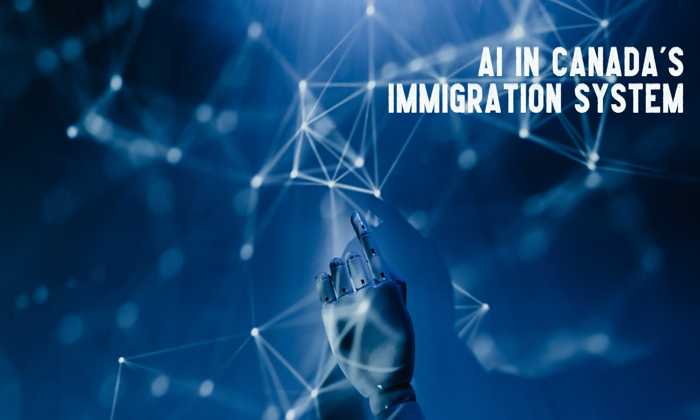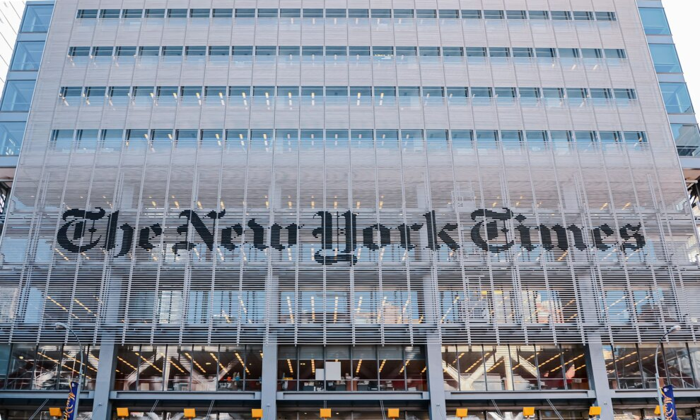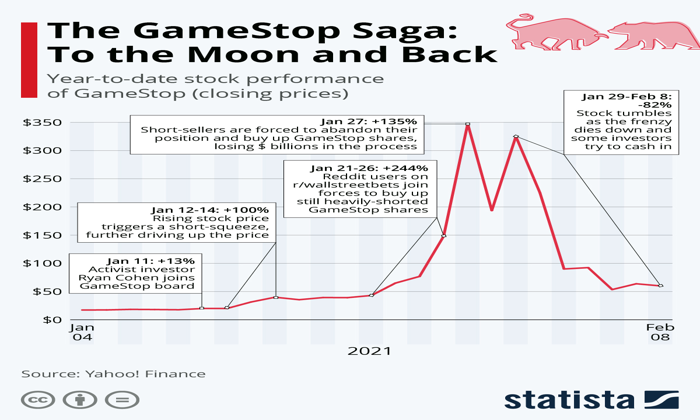AI researcher immigration is emerging as a critical issue, particularly in light of recent events that have raised concerns around U.S. immigration policies in 2023. The situation reflects a troubling trend where the potential denial of green cards can drive exceptional talent, like that of a leading OpenAI researcher, away from the U.S. This sentiment is echoed by deepening frustration within the tech community, as industry leaders recognize that rejecting top-tier professionals could seriously hinder America’s dominance in artificial intelligence. The stark reality is that these restrictive immigration policies could lead to challenges in retaining AI talent, a factor that many researchers, including prominent figures like Sam Altman, are tackling in debates about the future of AI advancement in the nation. As international scientists evaluate their options, the repercussions of these policies could resonate well beyond individual cases, ultimately reshaping the landscape of AI research in the United States.
Concerns regarding the immigration of skilled AI professionals are creating ripples not just in tech hubs, but across various scientific disciplines. With stricter immigration policies becoming a reality, many researchers and innovators are contemplating relocations to other countries that offer more favorable climate for international scientists. Events such as the denial of a green card for a prominent AI researcher exemplify the broader challenges that could jeopardize the future of technological progress in the United States. Conversations surrounding high-skill immigration, influenced by comments from tech leaders like Sam Altman, underscore the pressing need for policy reform to attract and retain global talent. As these trends unfold, the quest for improved immigration pathways will become paramount in ensuring the vitality of the U.S. tech ecosystem.
The Impact of OpenAI Green Card Denial on AI Talent Retention
The recent denial of a green card application for an OpenAI researcher has cast a shadow over the future of AI talent retention in the United States. With stricter immigration policies implemented during the Trump administration still in effect, many highly skilled individuals are reconsidering their options. The departure of top researchers like Kai Chen not only deprives the American tech industry of invaluable expertise but may also encourage a brain drain to countries with more accommodating immigration policies, such as Canada and European nations. As highlighted by recent polls, the potential exodus threatens U.S. leadership in the rapidly evolving field of artificial intelligence.
Furthermore, the discontent among current AI professionals, including notable figures like Noam Brown, emphasizes the urgency of addressing immigration barriers. Colleagues in the tech community worry that continued green card denials will force the U.S. to lose its competitive edge in AI development. As seen with Kai Chen’s situation, the implications extend beyond individual careers; they pose a substantial risk to innovation and technological advancement within the nation. For companies like OpenAI, retaining top talent is critical, and any failure to advocate for more favorable immigration policies could have lasting repercussions.
Understanding US Immigration Policies 2023 and Their Effects
US immigration policies in 2023 continue to be shaped by political agendas and economic considerations, significantly affecting the landscape for international scientists. The policies initiated during the Trump administration, marked by increased scrutiny and restrictions, have resulted in a climate of uncertainty, particularly for high-skilled immigrants. This environment can lead to significant talent loss, as prospective applicants weigh the risks associated with pursuing opportunities in the U.S. against more welcoming environments abroad.
The ramifications of these policies not only influence individual career choices but also impact the broader scientific community in the United States. Organizations like OpenAI and other tech firms may find themselves at a competitive disadvantage, missing out on innovative contributions from global talent. If these policies remain unchanged, the U.S. risks losing its status as a hub for AI advancement and technological leadership, prompting urgent discussions among industry leaders about the need for reform.
AI Researcher Immigration: Challenges and Opportunities
Navigating the immigration landscape as an AI researcher can be fraught with challenges, especially under current U.S. policies. The denial of green cards for qualified individuals creates an atmosphere of reluctance among potential applicants from around the world. Researchers often find themselves at a crossroads, deciding whether to invest their time and talent in the U.S. or pursue opportunities in countries with friendlier immigration frameworks. The importance of high-skill immigration for technological progress is underscored by the cases of researchers like Kai Chen, who must now reassess their futures amid increasing uncertainties.
However, there are potential opportunities for reform that could benefit both AI researchers and the U.S. tech sector. Advocacy from industry leaders, including Sam Altman, can play a pivotal role in shaping public sentiment and influencing policy amendments. By promoting a more inclusive immigration approach, the U.S. can position itself as a leading destination for top-tier AI talent, ensuring that the country remains at the forefront of innovation and research.
The Role of Sam Altman in Advocating for Immigration Reform
As CEO of OpenAI, Sam Altman has been a vocal supporter of immigration reform, especially for high-skill professionals. His previous statements have highlighted the importance of attracting international talent to maintain the U.S.’s competitive edge in technology and AI. However, his silence on specific incidents, such as the denial of Kai Chen’s green card application, raises questions about the effectiveness of advocacy efforts within the tech community. Altman’s influence could be instrumental in addressing these challenges, but it also underscores the complexities of navigating immigration reform.
The tech industry is at a crossroads, grappling with how to balance the need for infrastructure supporting international scientists while also advocating for change in immigration policies. Altman’s leadership could help galvanize support for measures that simplify the immigration process and provide pathways for researchers to contribute to the U.S. economy without fear of rejection. Moving forward, the collaboration between industry leaders and policymakers will be essential in ensuring that the United States remains an attractive destination for AI talent.
The Consequences of Stricter Immigration Policies on AI Innovation
The tightening of immigration policies has far-reaching consequences for AI innovation in the United States. As more researchers face challenges in securing visas or green cards, the potential for groundbreaking work is diminished. The departure of established professionals like Kai Chen highlights the risks associated with a restrictive immigration climate. Such policies not only threaten individual careers but can also stifle the collaborative spirit that is vital for scientific progress and discovery.
Moreover, the effects of these immigration barriers may lead to a more fragmented global AI landscape. Countries that actively welcome international scientists are likely to benefit from a brain gain, attracting bright minds seeking stability and opportunity. This shift could redefine where cutting-edge AI research occurs, ultimately influencing the U.S.’s standing in the global tech arena. If the current trajectory continues, American companies may find it increasingly difficult to recruit the talent necessary to drive innovation forward.
How International Scientists View the U.S. as a Career Destination
International scientists have historically regarded the United States as a prime destination for advancing their careers, primarily due to its cutting-edge research facilities and robust tech ecosystem. However, recent developments in immigration policies have prompted many to reconsider this perspective. A significant portion of the scientific community is now contemplating opportunities abroad, with recent polls indicating that 75% of scientists are open to relocating, particularly towards countries such as Canada and those in Europe. This shift reflects a growing sentiment that the U.S. may no longer provide the best environment for career growth.
The challenges posed by the U.S. immigration framework, especially under policies introduced during previous administrations, are forcing talented researchers to reassess their options. The result could be a gradual shift of intellectual capital away from the U.S., as scientists seek countries that offer more favorable conditions for research and work. If this trend continues, it could undermine the U.S.’s long-standing reputation as a global leader in scientific innovation and technology development.
Future Outlook for AI Research Amidst Immigration Challenges
The future of AI research in the United States faces significant uncertainties as it grapples with ongoing immigration challenges. With tightened policies and increasing scrutiny on international applicants, many researchers may hesitate to pursue opportunities within the U.S. However, there is also potential for change, as the tech industry becomes more vocal about the importance of accessible immigration pathways. Industry leaders might influence policymakers to reevaluate and reform existing immigration laws to better accommodate high-skill professionals.
Ultimately, the ability of the U.S. to remain a dominant force in AI research depends on its willingness to adapt. By fostering an inclusive environment that prioritizes the retention and attraction of international talent, the country can reclaim its position as a leader in innovation. Embracing this diverse pool of expertise not only benefits individual companies but also ensures that the U.S. remains at the cutting edge of technology and continues to lead in AI development.
Public Sentiment on Immigration in the Tech Community
Public perception of immigration, especially within the tech community, has evolved significantly in recent years. Many professionals view immigration restrictions as detrimental to progress in technology and scientific research. The disquiet among researchers following incidents like the denial of Kai Chen’s green card application showcases a broader angst regarding the U.S.’s ability to attract and hold onto the world’s best minds. As open dialogue continues to permeate the sector, there is a growing call for reform that aligns immigration policies with the needs of the tech industry.
A push for more open immigration policies suggests that tech professionals believe the country should capitalize on the strengths of diverse talent pools. The tech community’s collective voice may shape future public opinion, encouraging greater advocacy for systems that facilitate the immigration of skilled workers. If successful, these movements could lead to transformative changes in how the U.S. approaches immigration, ultimately impacting the landscape of AI research and innovation.
Collaborative Efforts to Advocate for Immigration Reform
Recognizing the urgent need for immigration reform, collaborative efforts within the tech industry have begun to surface. Initiatives spearheaded by organizations like OpenAI, in conjunction with other tech giants, aim to unite industry voices calling for changes to restrictive immigration policies. By presenting a unified front, these companies not only highlight the personal ramifications of such policies but also stress their impact on national innovation and competitiveness in the global market.
These advocacy efforts serve as a crucial step towards fostering a more inclusive environment for international scientists in the U.S. With influential figures like Sam Altman at the forefront, there is hope for meaningful dialogues between the tech sector and policymakers. Success in these initiatives could lead to more favorable immigration laws, thereby enhancing the U.S.’s reputation as a destination for top-tier talent and ensuring that it maintains its edge in AI and technology.
Frequently Asked Questions
What impact does the OpenAI green card denial have on international scientists in the U.S.?
The OpenAI green card denial highlights the increasing challenges international scientists face under stricter U.S. immigration policies. Such cases may discourage AI researchers and other skilled professionals from pursuing careers in the U.S., potentially leading to a talent drain that threatens the country’s leadership in AI innovation.
How are U.S. immigration policies in 2023 affecting AI talent retention?
U.S. immigration policies in 2023 continue to pose significant challenges for AI talent retention. The tightening of green card regulations makes it difficult for highly skilled researchers, like those at OpenAI, to secure permanent residency, prompting many to consider moving abroad to countries with more favorable immigration systems.
What did Sam Altman say about immigration for AI researchers?
Sam Altman has openly advocated for easier immigration pathways for AI researchers. However, he has not specifically commented on individual cases like the OpenAI green card denial, which raises concerns about the impact of current immigration policies on the tech industry’s ability to attract and retain top talent.
How does the situation of Kai Chen reflect on international scientists in the U.S.?
Kai Chen’s move to Vancouver following her green card denial reflects a broader trend among international scientists in the U.S. Many are reassessing their options due to strict immigration policies, highlighting fears that the U.S. may lose its status as a leader in AI research if talented individuals are forced to leave.
What is the current sentiment among scientists regarding careers in the U.S.?
Recent polls indicate a significant sentiment shift among scientists, with around 75% reconsidering their career options in the U.S. Many are looking towards opportunities in Europe and Canada, influenced by the restrictive U.S. immigration policies affecting high-skill immigration.
Are lawsuits common due to U.S. immigration policies affecting AI researchers?
Yes, there has been an increase in lawsuits related to U.S. immigration policies as they impact AI researchers and international scientists. Over a hundred lawsuits have been reported, as many individuals seek to challenge decisions that impede their ability to work and reside in the U.S. for research.
What challenges are international students facing in the U.S. regarding immigration?
International students are facing heightened scrutiny and visa issues under the current U.S. immigration framework, which has been exacerbated by recent policy changes. These difficulties hinder their ability to stay in the country post-graduation, threatening the influx of fresh AI talent into the U.S. workforce.
| Key Points |
|---|
| An OpenAI researcher faced green card denial under stricter immigration policies during the Trump era. |
| Colleagues view the decision as detrimental to U.S. leadership in AI. |
| Kai Chen, an important contributor to GPT-4.5, will relocate to Vancouver due to this denial. |
| The incident highlights challenges in tech sector immigration, affecting many foreign researchers. |
| Over 75% of scientists are considering career moves abroad, indicating a wider trend. |
| OpenAI’s CEO has not commented specifically on this case despite his advocacy for high-skill immigration. |
Summary
AI researcher immigration has become a prominent issue as the incident of an OpenAI researcher being denied her green card reveals the increasing challenges for foreign talent in the United States. The anecdote of Kai Chen’s relocation to Canada epitomizes the concern among top researchers about their future in the U.S. tech landscape, a sentiment echoed by her colleagues. With many scientists contemplating positions outside the U.S., it’s essential for policymakers to reconsider immigration approaches to maintain the country’s competitive edge in artificial intelligence.
AI researcher immigration has become a pressing issue in recent years, particularly as U.S. immigration policies 2023 have shifted, leading to dramatic consequences for talented individuals like those at OpenAI. The denial of an OpenAI green card for a prominent researcher has ignited discussions about the future of AI talent retention in America, with many wondering how such decisions may affect the country’s leadership in artificial intelligence. This incident echoes the sentiments shared by Sam Altman, whose comments on immigration highlight the complex landscape facing international scientists seeking opportunities in the U.S. As AI researchers like Kai Chen grapple with navigating these constraints, their migration choices serve as a bellwether for the industry’s health. Ultimately, the tug-of-war between innovation and immigration policy could reshape the landscape of AI development and competitiveness for years to come.
The topic of immigration for AI scientists delves into critical discussions surrounding the movement of skilled professionals across borders, especially in light of the recent visa challenges they face. As international researchers evaluate their options against the backdrop of evolving visa regulations, many express concern about the implications of restrictive policies on technological advancement. The case of an OpenAI researcher’s green card denial exemplifies broader patterns of high-skill immigration challenges, prompting dialogues among industry leaders about the need for reform. Sam Altman’s previous remarks about immigration pathways underscore a growing urgency to attract and retain top talent essential for maintaining the U.S. as a leader in innovation. In this context, the immigration experiences of AI talents now serve as a pivotal factor influencing the future of research and development.















